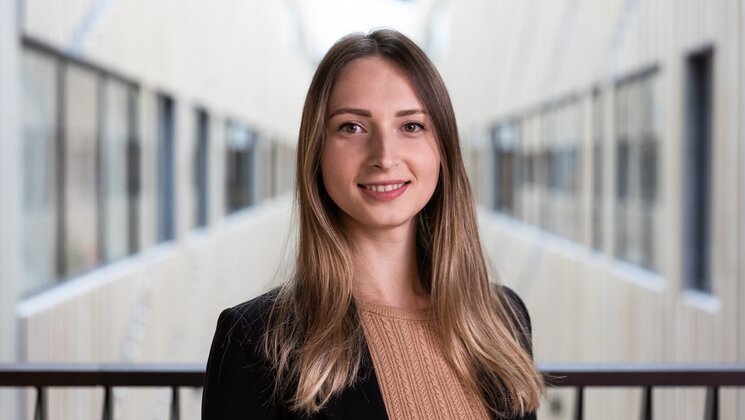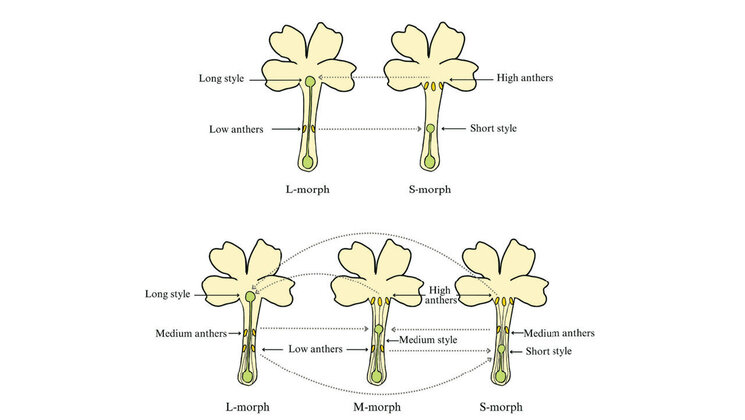-
Faculty of Arts and HumanitiesDean's Office, Faculty of Arts and HumanitiesJakobi 2, r 116-121 51005 Tartu linn, Tartu linn, Tartumaa EST0Institute of History and ArchaeologyJakobi 2 51005 Tartu linn, Tartu linn, Tartumaa EST0Institute of Estonian and General LinguisticsJakobi 2, IV korrus 51005 Tartu linn, Tartu linn, Tartumaa EST0Institute of Philosophy and SemioticsJakobi 2, III korrus, ruumid 302-337 51005 Tartu linn, Tartu linn, Tartumaa EST0Institute of Cultural ResearchÜlikooli 16 51003 Tartu linn, Tartu linn, Tartumaa EST0Institute of Foreign Languages and CulturesLossi 3 51003 Tartu linn, Tartu linn, Tartumaa EST0School of Theology and Religious StudiesÜlikooli 18 50090 Tartu linn, Tartu linn, Tartumaa EST0Viljandi Culture AcademyPosti 1 71004 Viljandi linn, Viljandimaa EST0Professors emeriti, Faculty of Arts and Humanities0Associate Professors emeriti, Faculty of Arts and Humanities0Faculty of Social SciencesDean's Office, Faculty of Social SciencesLossi 36 51003 Tartu linn, Tartu linn, Tartumaa EST0Institute of EducationJakobi 5 51005 Tartu linn, Tartu linn, Tartumaa EST0Johan Skytte Institute of Political StudiesLossi 36, ruum 301 51003 Tartu linn, Tartu linn, Tartumaa EST0School of Economics and Business AdministrationNarva mnt 18 51009 Tartu linn, Tartu linn, Tartumaa EST0Institute of PsychologyNäituse 2 50409 Tartu linn, Tartu linn, Tartumaa EST0School of LawNäituse 20 - 324 50409 Tartu linn, Tartu linn, Tartumaa EST0Institute of Social StudiesLossi 36 51003 Tartu linn, Tartu linn, Tartumaa EST0Narva CollegeRaekoja plats 2 20307 Narva linn, Ida-Virumaa EST0Pärnu CollegeRingi 35 80012 Pärnu linn, Pärnu linn, Pärnumaa EST0Professors emeriti, Faculty of Social Sciences0Associate Professors emeriti, Faculty of Social Sciences0Faculty of MedicineDean's Office, Faculty of MedicineRavila 19 50411 Tartu linn, Tartu linn, Tartumaa ESTInstitute of Biomedicine and Translational MedicineBiomeedikum, Ravila 19 50411 Tartu linn, Tartu linn, Tartumaa ESTInstitute of PharmacyNooruse 1 50411 Tartu linn, Tartu linn, Tartumaa ESTInstitute of DentistryL. Puusepa 1a 50406 Tartu linn, Tartu linn, Tartumaa ESTInstitute of Clinical MedicineL. Puusepa 8 50406 Tartu linn, Tartu linn, Tartumaa ESTInstitute of Family Medicine and Public HealthRavila 19 50411 Tartu linn, Tartu linn, Tartumaa ESTInstitute of Sport Sciences and PhysiotherapyUjula 4 51008 Tartu linn, Tartu linn, Tartumaa ESTProfessors emeriti, Faculty of Medicine0Associate Professors emeriti, Faculty of Medicine0Faculty of Science and TechnologyDean's Office, Faculty of Science and TechnologyVanemuise 46 - 208 51003 Tartu linn, Tartu linn, Tartumaa ESTInstitute of Computer ScienceNarva mnt 18 51009 Tartu linn, Tartu linn, Tartumaa ESTInstitute of GenomicsRiia 23b/2 51010 Tartu linn, Tartu linn, Tartumaa ESTEstonian Marine Institute0Institute of PhysicsInstitute of ChemistryRavila 14a 50411 Tartu linn, Tartu linn, Tartumaa EST0Institute of Mathematics and StatisticsNarva mnt 18 51009 Tartu linn, Tartu linn, Tartumaa EST0Institute of Molecular and Cell BiologyRiia 23, 23b - 134 51010 Tartu linn, Tartu linn, Tartumaa ESTTartu ObservatoryObservatooriumi 1 61602 Tõravere alevik, Nõo vald, Tartumaa EST0Institute of TechnologyNooruse 1 50411 Tartu linn, Tartu linn, Tartumaa ESTInstitute of Ecology and Earth SciencesJ. Liivi tn 2 50409 Tartu linn, Tartu linn, Tartumaa ESTProfessors emeriti, Faculty of Science and Technology0Associate Professors emeriti, Faculty of Science and Technology0Institute of BioengineeringArea of Academic SecretaryHuman Resources OfficeUppsala 6, Lossi 36 51003 Tartu linn, Tartu linn, Tartumaa EST0Area of Head of FinanceFinance Office0Area of Director of AdministrationInformation Technology Office0Administrative OfficeÜlikooli 17 (III korrus) 51005 Tartu linn, Tartu linn, Tartumaa EST0Estates Office0Marketing and Communication OfficeÜlikooli 18, ruumid 102, 104, 209, 210 50090 Tartu linn, Tartu linn, Tartumaa EST0Area of RectorRector's Strategy OfficeInternal Audit OfficeArea of Vice Rector for Academic AffairsOffice of Academic Affairs0University of Tartu Youth AcademyUppsala 10 51003 Tartu linn, Tartu linn, Tartumaa EST0Student Union OfficeÜlikooli 18b 51005 Tartu linn, Tartu linn, Tartumaa EST0Centre for Learning and TeachingArea of Vice Rector for ResearchUniversity of Tartu LibraryW. Struve 1 50091 Tartu linn, Tartu linn, Tartumaa EST0Grant OfficeArea of Vice Rector for DevelopmentCentre for Entrepreneurship and InnovationNarva mnt 18 51009 Tartu linn, Tartu linn, Tartumaa EST0University of Tartu Natural History Museum and Botanical GardenVanemuise 46 51003 Tartu linn, Tartu linn, Tartumaa EST0International Cooperation and Protocol Office0University of Tartu MuseumLossi 25 51003 Tartu linn, Tartu linn, Tartumaa EST0
European research grant helps to map behavioural causes of weight change variability with genetic lottery

Uku Vainik, Associate Professor of Behavioural Genetics at the University of Tartu, has been awarded a Starting Grant from the European Research Council (ERC) to study the behavioural and genetic links to obesity and to identify possible new interventions to combat obesity.

Obesity is a hereditary chronic disease affecting nearly one billion people worldwide. According to the World Health Organization, by 2030, just over half of the human population will be overweight or obese. Given the health problems that accompany obesity, this is a huge additional burden on healthcare systems and requires rapid and effective solutions.
A wide range of treatments, from behavioural recommendations and medication to gastric bypass surgery, have been developed to combat overweight and obesity. However, the interventions have very different effects on people struggling with weight. Some can overcome their weight problem, while others regain the extra weight despite their best efforts.
Vainik's research team is trying to understand what factors might be more broadly predictive of weight loss, whether they have a causal relationship with weight loss success, and whether weight loss programmes can be made more effective by understanding this relationship. In their research, they use machine learning, health data collected in gene banks and a mobile app that supports health behaviour.
Machine learning helps to clarify information overload
Nearly 200 factors have been proposed in the scientific literature as predictors of weight loss success, including psychosocial, environmental, behavioural and biological factors and those related to quality of life. However, there are too many of these to measure in a single person. Vainik plans to aggregate these factors in large datasets using machine learning and reduce the heterogeneity in the wording of the same indicator. For example, in the case of personality traits, good self-control, fortitude, conscientiousness and perseverance may mean essentially the same thing.
Similar factors can be aggregated in datasets where weight change factors have been measured over time. For example, over the years, gene donors in the Estonian Biobank have helpfully participated in several studies covering most of the 200 weight change factors. Data from the studies and medical check-ups also provide a history of people's weight, allowing researchers to match weight changes with the factors that may have influenced them. "In Estonia, over the last decade, a few thousand people have used prescribed medication or surgery to lose weight. However, tens of thousands of people have experienced weight loss or gain without guidance from the doctor. The data from the recent personality study and the wellbeing and mental health study of the biobank will allow us to combine physical health information with mental health and personality data, and to look for possible behavioural factors that may influence weight change,” explained Vainik.
Causal link between weight change and its predictors
The identified relationships are tested against datasets from Germany, the UK and Sweden to find similar characteristics. The aim is to create a questionnaire to identify the bottlenecks in weight loss. It should include as wide a range of factors as possible related to weight change that are psychometrically well-measured.
In addition, data from the Estonian Biobank will help to identify causal relationships between weight change predictors and the weight change itself. Genetic information allows us to identify which factors mentioned in the questionnaire actually influence weight loss. "People differ in their genetic likelihood to have higher or lower conscientiousness or faster or slower eating rate. This genetic baggage has been randomly assembled from the genome of our parents, so the human genome mimics a natural experiment. In this way, we can see whether the detected genetic probability to be more conscientious or eat faster also influences the likelihood of weight change success later on. This will help us to identify potentially more effective causal factors of weight change," Vainik explained.
Weight-loss programmes created in partnership with the private sector will be used to verify these effective factors. Users of the programmes will help to confirm whether genetically screened behavioural guidelines for weight loss actually work.
The project starts in 2024, lasts for five years and is funded by the European Research Council with €1.5 million. Researchers from both the Institute of Psychology and the Institute of Genomics of the University of Tartu are involved in the project. The writing of the grant proposal was supported by the Project Writing Unit of the university’s Grant Office, as well as by the university’s ERC Incentive Grant. The grant from the Estonian Research Council helped to prepare for the interviews of the call.
Read more similar news






